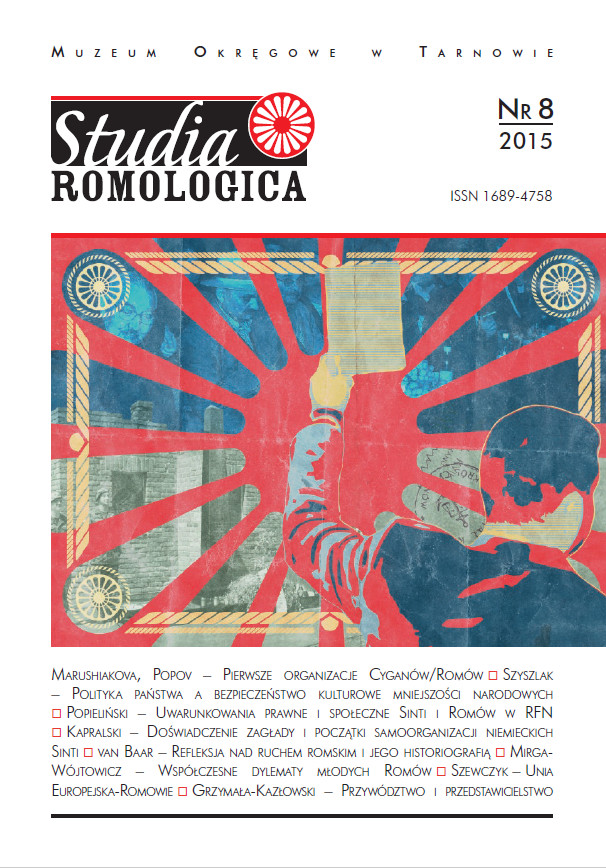Disappearing profession: Gypsy bear leaders from Romania (ursari) – the history and methods of training
Zanikajaca profesja: Cyganscy niedzwiednicy w Rumunii (Ursari) – historia i metody tresury
Author(s): Ewa KocójSubject(s): History, Social Sciences, Sociology, Ethnic Minorities Studies
Published by: Muzeum Okręgowe w Tarnowie
Keywords: Roma; bear leaders; ursari; Romania
Summary/Abstract: The history of Gypsies, whom scholars often consider as the so-called people without history, still raises many questions to researchers. The history of Gypsy culture can be reconstructed and interpreted from the fragments of ancient sources as well as through the memories of the living representatives of these ethnic groups. This article presents preliminary research on the history and training methods associated with Ursari (from the Romanian urs meaning ʻbearʼ) – a Gypsy group and, at the same time, a profession of animal trainers, particularly bear-handlers, from Romania.The text discusses the possible origins of this occupation, the place of Ursari in the Romanian social structure, their financial situation, and the attitude of the Church and the State to bear leaders. It also presents the methods of animal training Gypsies have used and passed on through the centuries, as well as the reasons why this profession has been disappearing in Romania.The article uses qualitative research methods, including the analysis of historical sources (documents from the offices of Moldovan, Wallachian and Transylvanian rulers and descriptions written by people travelling across former Romanian territories dated XIV–XIX centuries) and ethnographic sources. In addition, the analysis also focused on the visual sources from Romanian territories associated with Ursari as well as on the sources used in the ethnographic study regarding the cultural memory among Roma from Romania.
Journal: Studia Romologica
- Issue Year: 8/2015
- Issue No: 1
- Page Range: 145-164
- Page Count: 20
- Language: English, Polish, Romany

